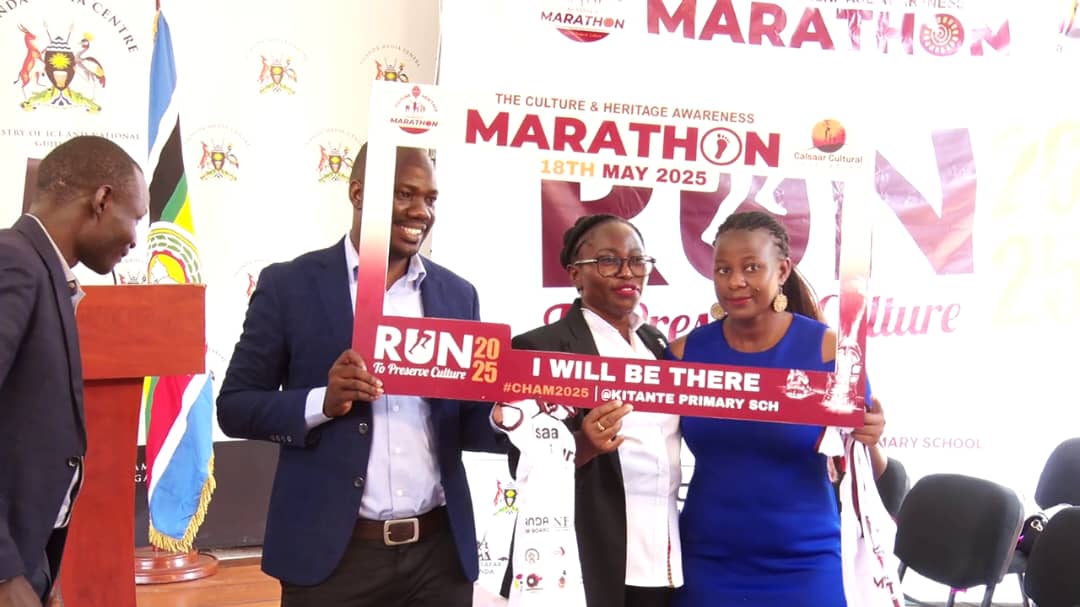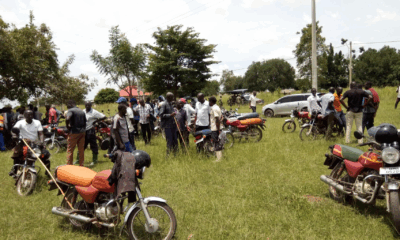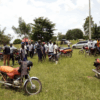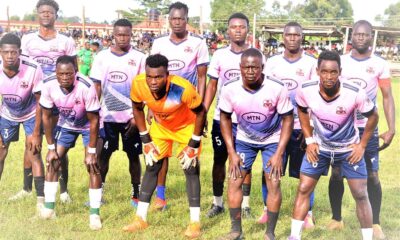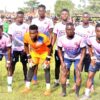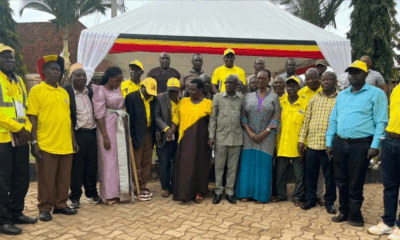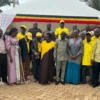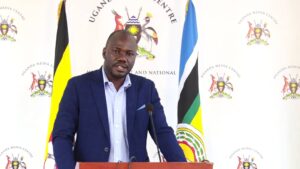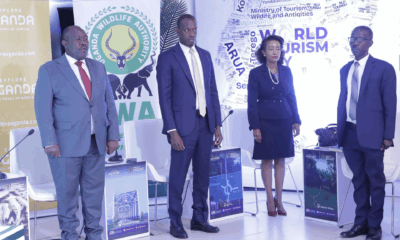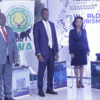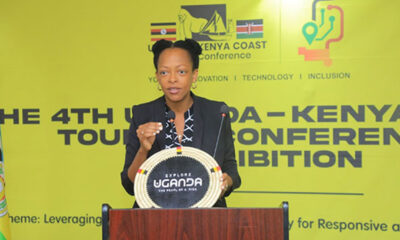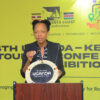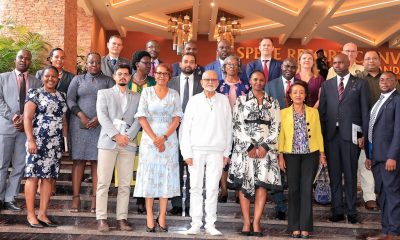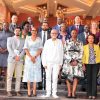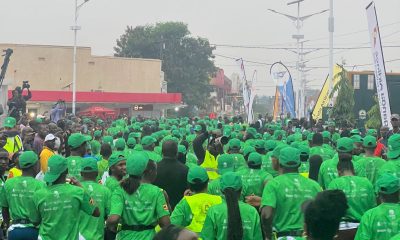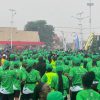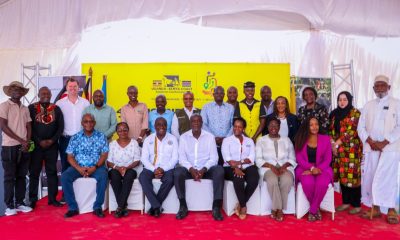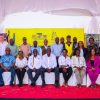Tourism
Calsaar Cultural Initiative Gears Up For The 1st Edition Of The Culture And Heritage Awareness Marathon In Uganda
As Uganda intensifies efforts to diversify its tourism offerings and create more memorable visitor experiences, one emerging area gaining significant traction is sports tourism.
Recognising the potential of this sector, tour operators are increasingly shifting focus toward leveraging sporting events to attract both domestic, regional, and international tourists. In anticipation of the Africa Cup of Nations (AFCON) 2027 and its associated economic opportunities, the Federation of Uganda Football Associations (FUFA) is set to engage tourism stakeholders to align efforts and maximise benefits. While this engagement awaits, among the players tapping into the increasingly growing sports tourism space is Calsaar Safaris Uganda, which, through its Calsaar Cultural Initiative, has joined the ranks of high-profile events such as the MTN Marathon, the Elgon Half Marathon with Joshua Cheptegei, and the Tusker Lite Rwenzori Marathon to organize its first edition of the Culture and Heritage Awareness Marathon 2025.
These events are not only redefining Uganda’s tourism sector but are also opening new frontiers for investment. More importantly, they empower local communities through job creation, support SMEs, and stimulate regional economies through the goods and services demanded by large gatherings at these events.
The Culture and Heritage Awareness Marathon 2025, making its debut this year, is proudly organised under the Calsaar Cultural Initiative, a Non-Governmental organisation (NGO) dedicated to preserving and promoting Uganda’s rich cultural diversity and heritage through community-centred engagements and traditional practices.
Scheduled for Sunday, 27th July 2025, at Kitante Primary School, the marathon promises a fusion of sport and culture, running from 7:00 AM to 1:00 PM. The event is open to all, with three race categories to cater to varying levels of fitness: 5km, 10km, and 21km. More than just a run, the day will be a celebration of Uganda’s cultural wealth. Participants and attendees will enjoy live cultural performances, art and crafts exhibitions, a cultural awareness symposium, and engaging traditional storytelling sessions.
Participation kits are available at an affordable fee of UGX 25,000, offering a unique opportunity to be part of a movement that fosters unity, wellness, and cultural pride.
The marathon was launched on 17th April at the Uganda Media Centre under the theme ‘’Running for Culture, Unity and Sustainable Development’’ and comes shortly following subsequent activities organized by the NGO to ignite interest for culture and preservation as these were not limited to a symposium at Makerere University, an exhibition on International Museums Day in Kabale District and a Greening campaign held in Kigezi.
Through the forthcoming marathon, Calsaar Cultural initiative seeks to bring people together with diverse backgrounds to come celebrate and support cultural preservation initiatives as this year’s marathon aligns with the World Day for Cultural Diversity for Dialogue and Development commemorated annually on 21st May to emphasize the role of culture in sustainable development, social cohesion and community empowerment.
According to Steven Sekajja, Executive Director of the Calsaar Cultural Initiative, this year’s debut marathon is more than just a race; it is a powerful collective statement. “It affirms that culture matters, that unity is achievable, and that sustainable development must be deeply rooted in our identity and heritage.”
He said, ‘’Proceeds from this 1st edition of the Culture and Heritage Awareness Marathon 2025 will go towards documentation support and a storytelling project focused on collecting, preserving, and archiving indigenous knowledge, oral traditions, and folklore from Teso Region, especially in Soroti District, where needs assessment has been done.
We engaged key stakeholders, including local cultural leaders, historians, and community members, to determine the most suitable project based on their needs. In addition, 1,000 indigenous trees with cultural essence will be planted and nurtured, emphasizing the deep connection between culture, nature, and sustainability, he added.
Why a Culture and Heritage Marathon
Uganda, often dubbed the Pearl of Africa, is not just a geographical marvel. The Country is rich with a variety of ethnic identities, languages, customs, and traditions that define its soul. We are a country with over 56 tribes, each with its unique traditions, way of living, cultural details, including culinary, dress code, among others that co-exist across four major regions of Central, Eastern, Northern, and Western Uganda. The story of Uganda’s unity in diversity is both beautiful and complex. It is against this cultural backdrop that Calsaar Cultural Initiative will host its 1st Edition of the Culture and Heritage Awareness Marathon, a timely initiative to celebrate, preserve, and promote the nation’s vibrant heritage.
A Marathon Deeply Rooted in Identity
The Culture and Heritage Awareness Marathon will serve as more than a sporting event, as it is also a cultural pilgrimage in motion. In an era where globalisation and urbanisation increasingly threaten indigenous knowledge systems, traditional values, and language preservation, Uganda must rise to protect what makes it unique. The marathon aims to inspire a national awakening around the richness and relevance of Uganda’s cultural identities.
The event is also set to feature cultural exhibitions, traditional dances, indigenous foods, and educational booths from different ethnic groups; therefore, the marathon is a statement of cultural pride, an appeal for heritage preservation, and a call to action for intergenerational cultural transmission.
Why Now?
There is growing concern that Uganda’s younger generation, increasingly urbanised and digitally connected, risks losing connection with their ancestral knowledge systems. Ceremonial customs, traditional dances, clan totems, and oral histories are becoming faint echoes in modern life.
According to the 2019 Uganda National Culture Policy Review, less than 40% of youth under 25 years can speak their native language fluently, particularly in urban centres.
Based on this background, the Culture and Heritage Awareness Marathon serves as a national cultural intervention and a significant wake-up call to re-establish Ugandan identity in its rich heritage while promoting unity through mutual understanding.
Uganda’s Population and Cultural Heritage at a Sneak Peek
According to the National Population and Housing Census 2024, Uganda recorded a total population of 45.9 million, showcasing an 11.3 million increase since 2014. The census also delineates the demographic distribution across major sub-regions as the Bantu-speaking populations are predominant in the central and southern regions, with the Baganda alone accounting for around 16.3 million, which is about 16.5% of the national total. They have a strong presence in Kampala, Buganda, and the surrounding districts. These are followed by Busoga, Ankole, Tooro, and Karamojong/Teso areas.
Cultural richness cuts across tribes such as the Batooro, who comprise a population of 810,700 people, and are best known for the Kinyege and Orunyege-Ntogoro dances.
The Karamojong, numbering about 475,000, maintain pastoral traditions defined by seasonal transhumance and the unique rite of strength-based courtship wrestling, transforming this athletic event into a marriage prerequisite. These practices present compelling narratives to animate this year’s marathon’s cultural exhibits and storytelling sessions.
The Lugbara people are renowned for agricultural livelihoods and community customs such as the Cikiri naming ceremony. Their society, symbolised by the leopard totem, retains strong clan-based identities. Additionally, the Kumam, who are a population of approximately 720,000 in total, offer captivating accounts of clan-owned political structures and oral traditions. They celebrate life through music, storytelling, and dance. These rich cultural assets showcase Uganda’s diverse symbolisms and ceremonial expressions, perfect for engaging live demos and interactive discussion booths during the marathon, come this July at Kitante Primary School in Kampala.
Comments



